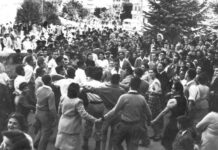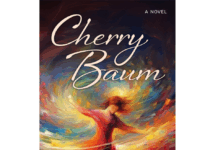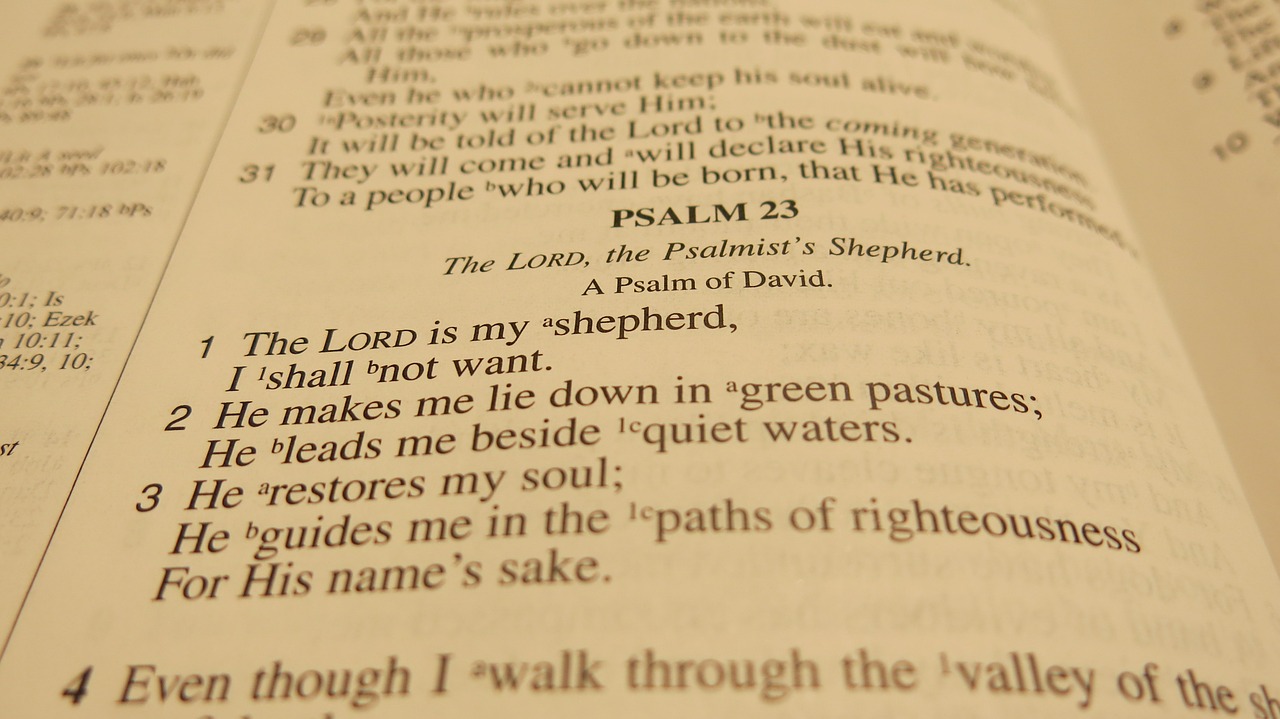Duets on Psalms: Drawing New Meaning From Ancient Words, Jack Riemer and Elie Spitz, Ben Yehuda Press, Teaneck, NJ, ©2023, ISBN 978-1-953829-62-7, p. 222, plus endnotes, $24.95.
There is a story told of a southern Baptist visiting his Episcopalian friend in Massachusetts. At church services on his first Sunday there, the preacher waxed eloquent, “The Lord is My Shepherd!” And the Baptist hollered, “AMEN BROTHER!” The congregation looking this way and that, trying to identify who shouted. The preacher continued and a few moments later uttered, “I fear No evil, because You are with Me!” after which he stood up, bellowing, “HALLELUJAH, PRAISE THE LORD!” Now, the congregation, truly dismayed, glared, attempting to shame him into silence. At last, the preacher called out, “And I shall dwell in the House of the Lord, Forever!” And the Baptist cried out, arms upraised, “LORD, OH LORD, YOU ARE MAJESTIC!” The congregation’s president immediately stood up from his seat on the platform, yelling to him, “What’s the matter with you?” The Baptist replied, “I got religion,” to which the president responded, “Don’t you know you can’t have religion here?”
Most identify the Book of Psalms as a collection of Jewish hymns, prayers, and poems mostly focusing on praising and adoring God. Rabbis Jack Riemer and Elie Spitz, co-authors of Duet on Psalms, with their long careers as pulpit rabbis recognize for too many, reciting psalms is a perfunctory exercise, spoken without passion and devoid of their intrinsic meaning. In Duet on Psalms, Riemer and Spitz channel the desires, emotions, and intensities conveyed by the psalms’ authors through histories, reflections, and multiple ways of interpretation. Thirteen different psalms, chosen by the authors exemplifying a creative or insightful message and representing key biblical themes found in the Book of Psalms, form the structure of Duet on Psalms. Among these themes are: “How can I find true happiness?” “Why are we forsaken?” “What is my purpose?” and “Does the soul survive death?” In Duets on Psalms, the authors answer ancient questions with modern visions.
Let me give a couple of examples.
Chapter 2 presents Psalm 8. Rabbi Spitz offers a verse-by-verse translation, in which we experience the psalmist’s passion:
How majestic is your name in all the earth;
Whose splendor You set upon the heavens. (v. 2)
What are humans, that You are mindful of them
And mortals that you have taken note of them? (v. 5)
Spitz follows with a close reading of the text, articulating and commenting on the psalmist’s conundrum: How can an all-powerful God bestow on humanity, insignificant creatures, custodianship of the world? The psalm reminds Spitz that only humans read and write and we are also the only animals to pray and establish rituals, allowing us to choose humility and self-restraint over arrogance and gluttony. The psalm also saddens him because he knows of the enormous human potential for destruction. If the psalmist’s puzzle were a challenge in the ancient world, how much more today with the threat of annihilation by nuclear bomb, or extinction through climate change resulting from our mishandling of nature? But the future is not fated, Spitz avers, understanding Psalm 8 as a wake-up call. “We are given both power and responsibility. The future of God’s wondrous creation is in our hands.”
Rabbi Reimer agrees, the central message of Psalm 8 is the psalmist’s amazement and astonishment at the world’s beauty, and filled with awe that God placed us in charge of it. Does humanity deserve dignity? Psychologists see the world driven by power and sex; economists by the divide between haves and have-nots; astronomers by our insignificance in a vast universe, and the twentieth century witnessed the implementation of euthanasia, resulting in the wanton murder of millions. Reimer insists in such a world, Psalm 8 “should be treasured and appreciated…[and] should be considered an important part of our spiritual legacy and armory.”
Rabbi Reimer understands Psalm 30, found in Chapter 6, as written by a sick person who nearly died, and miraculously recovered, offering abundant praise and profound gratitude to God. A portion of his translation is:
I exalt You, Adonai, for you scooped me up
And did not let my enemies rejoice over me. (v. 2)
Adonai, You brought up my spirit from Sheol;
You kept me alive!—unlike descenders of the Pit. (v. 4)
What benefit is there in my blood; in my descent to Shachat?
Shall the dust praise you? Shall it declare Your truth? (v. 10)
Reimer finds parallels between the psalmist’s ailment and God’s actions toward him: The psalmist, on the brink of going down to the grave is scooped up by God, and as God lifted him up, so too will he lift up God with acclaim. Reimer perceives the psalmist’s enemies as “his illness and the depression that it has caused,” and the experience of praying to God for help became the remedy, permitting the psalmist to conclude in verse 12, “You turned my grief into dancing; You untied my sackcloth and wrapped me in joy,” bringing us full circle. The psalm begins with despair, nothing transcends the grave, but “ends with the declaration: ‘now that I have recovered, I will not be silent. I will ever praise you.’” For Reimer, those who find a way to “call out” to God, discover that in doing so, they come to see their lives differently. Sincere prayer changes people.
For Rabbi Spitz, the author of Psalm 30 approached some grave danger, perhaps an illness, or mental despair, or even a physical enemy. Spitz, perceiving Psalm 30 from a different frame-of-reference, asks, “What happens after we die?” and responding with his research and anecdotal evidence on near-death experiences. Psalm 30 focuses on death using a variety of Hebrew words, such as Sheol and Shachat, each signifying going down to the grave or the afterlife. In contrast to our present understand of near-death experiences and the works of some prophets, this psalmist perceives death as final, questioning, “Shall dust praise you?” Spitz presents Psalm 30 as a deeply personal work, whose message is universal, inviting the reader to “turn to God when we are feeling broken, threatened, or in despair,” and even when we feel elated, this prayer offers self-awareness of our finitude, adding joy to our lives.
We do not know, nor will we likely ever know, the events leading each psalmist to write his immortal words. Perhaps a verse from the Book of Proverbs (14:10) offers a clue, “The heart knows its own bitterness and a stranger cannot share in its joy.” The hearts of the psalmists cry out to be heard, yearning to describe an inner indescribability—both tortuous fear and euphoric relief. By crafting clear commentaries, explanations and interpretations on different levels and mixing poignant stories with pertinent quotes, Duet on Psalms allows the duo of Spitz and Reimer, who agree and disagree, compare and contrast, and view the psalms from differing points of view, to construct a framework allowing the reader to better understand both the words of the psalms and the hearts of the psalmists, calling on each of us to awaken the closeness and affection for God that they had.
Republished from San Diego Jewish World

























